MercoPress. South Atlantic News Agency
Tag: Uruguay
-
Wednesday, June 1st 2011 - 10:33 UTC
The unstoppable march of the tobacco giants

By Emily Dugan - The following piece from The Independent on Sunday describes how in spite of the World NO tobacco Day (May 31) the industry ruthlessly exploits the developing world and makes huge profits even when smoking in the richer countries has been falling sustainedly.
-
Tuesday, May 31st 2011 - 08:43 UTC
Uruguay and Brazil pledge full support for Mercosur and Unasur
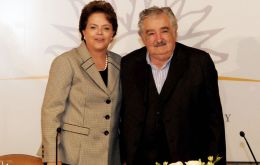
Uruguay and Brazil pledged Monday to continue strengthening the bilateral relation and regional integration through Mercosur and Unasur, after presidents Jose Mujica and Dilma Rousseff delegations signed fifteen cooperation agreements in Montevideo.
-
Monday, May 30th 2011 - 22:46 UTC
President Rousseff’s visit to Uruguay according to the Sao Paulo media

President Dilma Rousseff’s Monday visit to Uruguay will try to ease growing concerns in South America’s smallest country political and economic circles about “Brazil-dependency” and obstacles to bilateral trade, according to reports in the Sao Paulo media previous to her departure.
-
Monday, May 30th 2011 - 02:39 UTC
Latam’s largest bank has requested to operate in Uruguay as commercial bank

Banco do Brasil, Latin America’s largest financial institution has requested a licence to operate in Uruguay as a commercial bank according to the Brazilian government’s news agency.
-
Monday, May 30th 2011 - 00:50 UTC
Rousseff visits Uruguay to sign 12 accords on trade, integration and technology

Brazilian president Dilma Rousseff arrives Monday in Uruguay, the third country she will be visiting after China and Argentina, since taking office last January first. The two countries are founding full members of Mercosur and Brazil is Uruguay’s main trade partner.
-
Saturday, May 28th 2011 - 08:07 UTC
Uruguay has the most expensive cattle in the world, says British abattoir
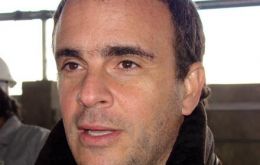
Uruguay has the most expensive cattle in the world in moments when international beef prices tend to slide which makes it very difficult to have a reasonable operation forcing abattoirs to leave workers redundant.
-
Saturday, May 28th 2011 - 08:02 UTC
Mercosur tourism ministers address ‘border crossings” and overseas promotion
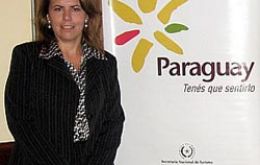
Mercosur tourism ministers agreed to facilitate border crossings for citizens from country members and to draft a homogeneous system for keeping the industry’s statistics, during their XI meeting held in Asuncion, Paraguay.
-
Saturday, May 28th 2011 - 00:36 UTC
Uruguay successfully floats Samurai bonds; warnings of economy over-heating

Interest for Uruguayan ten-year bonds in Yens more than doubled the issue equivalent to 490 million US dollars. The bonds are guaranteed by Japan Bank for International Cooperation with a 1.6% yield.
-
Friday, May 27th 2011 - 22:37 UTC
Chile’s pulp giant Arauco trebles profits in first quarter of 2011
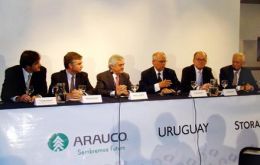
Chile’s Arauco the forestry and pulp unit belonging to the Copec group, trebled profits in the first quarter boosted by higher international prices and sale volumes particularly pulp, according to the company’s latest financial report.
-
Friday, May 27th 2011 - 08:48 UTC
Real estate operations in Punta del Este reached 2.25 billion USD in 12 months
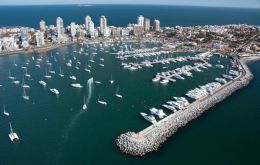
Real estate operations in Uruguay’s hottest resort and leisure farms’ area totalled 2.55 billion US dollars in the twelve months to April 2011, equivalent to daily deals involving 7 million USD.
